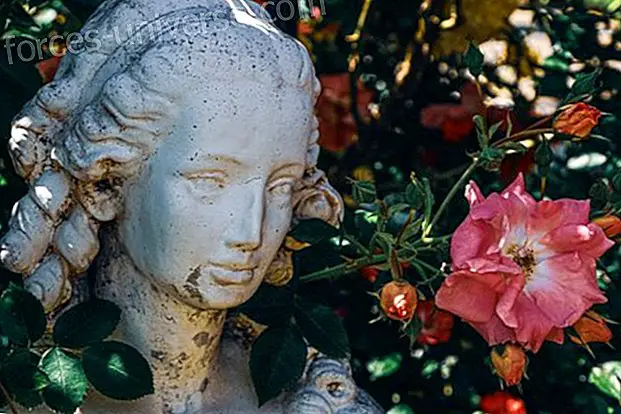We all, to a greater or lesser extent, know about the enormous wealth of Greek mythology. Probably inspired or influenced by the peoples of Asia Minor and Mesopotamian, it was a source of cultural wealth for the Romans. That is why today we make a new trip to our most recent past to meet Asopo, the Greek god . Do you sign up for this wonderful adventure ?
The Greek god Asopo
Asopo is the name by which the gods who represent different Greek rivers are known . Also called Oce nidas or fluvial gods, they were very famous in their day, although today they are not so well known.

Asopo Beocio
On the one hand we find Asopo Beocio . He was an ancient king of Platea. Its name served to give name to the river of the region, like that of its predecessor, Citerón, had already done with a mountain.
Thus, Asopo Beocio gives its name to a river of Boeotia that is born on Mount Citerón and crosses the entire Platea region. Finally it ends at the Euripo Strait. It is a river that is the natural border between Thebes and Platea.
Asopo Fliuncio
In this case it is a god that represents the Peloponnese River . This river was born in the Fliunte region and flowed into the Gulf of Corinth. Citizens claim that Asopo was the same river as the Meander, in Phrygia and Caria.
The legends of Asopo
Asopo and Metope had two sons and twelve daughters, whose names were the following : Antiope, Asopis, Calcis, Cleone, Córcira, she was loved by Poseidon and gave name to an island, Aegina, which was kidnapped by Zeus and eponymous for one island in the Aegean Sea, Oéroe, Harpina, mother of Enomao, Hipseo, was the hero who defended Thebes from the attack of the Seven, Ismene, grandmother of Io, Ismeno, father of Dirce, Nemea, is the one that gave name to the Peloponnese, Ornia, Pelasgo, Pirene, Platea, Salamina, which gave its name to an island, Sinope, mother of Sirius, Tanagra, Thebes, which gave its name to the famous city of Boeotia, and Tespia.
Also Asopo in Greek mythology appeared as the name of two kings who discovered the respective rivers of Boeotia and Peloponnese. But finally, these two characters merged into oneself.
Actually, it was a character that was divinized like the rest of the rivers to which they give names. Precisely because of the geographical nature of the names of the children of Asopo, it is much easier to recognize the parts of history that belong to the river Beocio and which to the Peloponnese.
In addition, Asopo would appear as one of the Oceánidas, being children of Ocean and Tethys, although other versions make him son of Poseidón and Peribea, or also of Zeus and Eurínome.
And if Assopo is important in Greek mythology, so are his daughters. Without a doubt, that of Salamis is the most important genealogical branch of the Asópidas, after the Aegina .

Salamis is the daughter of the Oceánida who was kidnapped by the god Poseidon, as she was sister Egina is by Zeus.
They have a son named Cicreo, who is the first king of the island, after finishing with a huge snake that devastates the Earth. Cicreo is the king who picks up the exiled Telamón, son of Éaco, on his island .
As for the other large island, known as Córcira, it is situated in the Ionian Sea next to a second called Córcira la Negra.
You see that the gods of Greek mythology, as is the case with Asopo, have a great presence in this society. Has this fact really changed so much in front of the new gods?
Seen on Wikipedia, by Pedro, editor of the Great White Brotherhood






